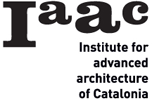Ricoh a famous multinational Japanese electronics company researches for what are the trends and needs of a future “office”.
They have a simple video explaining their ideas for their services.
http://www.ricoh.com/about/company/technology/rd/office.html
Future Trends
We have projected six trends in office form and workstyle based on transitions in the social climate as the premise for our vision of the future.
First, (1) we expect that the focus will be on core operations. Here, we define the operations the organization or the individual execute by profession as core operations. These differ depending on the organization or individual. Outsourcing non-core operations to whoever makes them into their own core operations, allows individual client organizations to concentrate on their own core operations. In order to focus on core operations, (2) internal and external networks will be strengthened. IT has enabled people to work anywhere regardless of locale. However, because different systems are used among organizations, under present circumstances, effective information transfer may be lacking. Following transitions in the world economy, (3) greater emphasis on operations in emerging markets can be predicted. If ways of working are not to be affected by place or device, or by networked environments, there will be a need to (4) respond to the confluence of business and personal. For example, to use devices purchased by the individual for business, or to use devices purchased by the company for personal use. Although the devices are the same, payments will be based on segmenting accounting between personal and business use. As the global way of working develops, consciousness of the global environment as global citizens also becomes high and the pursuit to (5) preserve the environment will further develop. Beyond that, rising health consciousness will also increase (6) the individual’s consciousness in pursuit of safety and security.
From these six trends, we assumed the following three office visions of the future.
1. Integration of usiness processes in advanced and emerging markets.
2. Two types of office worker: knowledge workers and skilled workers(*).
3. Individually optimized work environment.
* Polarization of workers: Here, we have defined the way people work into two categories: knowledge workers and skilled workers. A knowledge worker depends little on the company or the organization regarding the devices used or safety and security, and is a worker who views the project as a way of working, indifferent to working hours or the work place. On the other hand, a skilled worker depends greatly on the company or the organization regarding the devices used or safety and security, and is a worker who views work on the basis of working hours and the work place.
Ricoh’s vision for the future of work
We have examined the values that will guide Ricoh in supporting the new ways of working that reflect these office visions of the future.
First, we can imagine that we will build a workflow to connect internal and external organizations to construct seamless document workflow, where we may provide alternate processing and process-building services. Of course, because the workflow extends beyond the country and region, the environment must enable smooth collaboration, overcoming language barriers. We can support global collaboration by removing document and conversational language barriers, in order to communicate more seamlessly. We believe that providing one-stop outsourcing services related to business processes including higher level operations will improve the customer’s productivity so that each company can concentrate resources on core operations.
Further, the workplace is also diversifying. It will become necessary to provide information equipment-systems and services suited to diversified environments and needs, such as in newly emerging markets. Beyond that, a comfortable, secure and optimum mobile tele-work environment must be realized as workers and companies work anytime and anywhere (with anyone). We may provide the third space, not merely a space for rent, but accompanied by services with high added value, such as outsourcing services and remote communication beyond mobile services. A third space is meant to be a space where business can be accomplished at places other than an office as the first choice or home as the second. Although the way of working changes, a support environment is also needed to support brainstorming and self-development in accordance with the career and cultivation of human resources, self-learning, and response to diversified career plans.
Of course, we consider it important to provide services that are secure, safe, comfortable and suited to the individual. These must be able to realize an environment that saves energy and promotes health management and security.
The Ricoh Group forges ahead with R&D by focusing on technologies that adapt to the customer’s work style and reduce environmental impact, with a view to various future potentialities.
